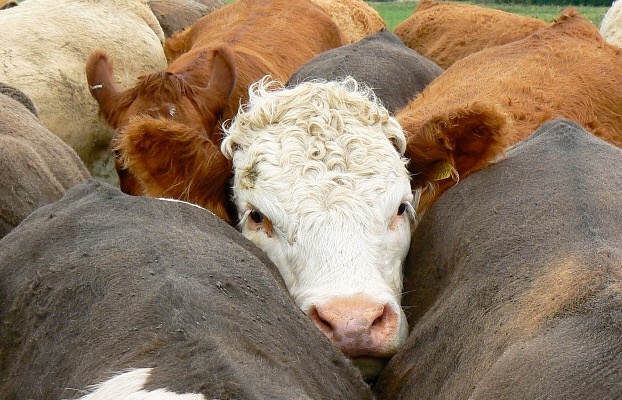
Merial is advising farmers in the North and West of the UK to be alert for outbreaks of liver fluke disease in sheep and cattle, as the latest NADIS Parasite Forecast reports a high risk period this autumn.
Sheep and cattle in Scotland will be at a particularly high risk of fluke infection. The risk in the West of the UK will also be high, but Central and Eastern regions of England will be at lower risk, though this will vary according to local conditions.
Sioned Timothy, Veterinary Advisor at Merial Animal Health says: “Preventative treatment to prevent acute liver fluke disease in sheep will almost certainly be required in Scotland and is very likely to be necessary in northern England and the West. In these circumstances triclabendazole is the most appropriate choice of treatment. It is effective against all stages of fluke, including the early immature stage which causes acute disease.”
“If land and space allows, adopting evasion strategies such as avoiding high-risk grazing (contaminated or poorly-drained fields) can reduce the incidence of acute fluke in sheep, especially if combined with an effective treatment plan.”
Sometimes affected sheep will simply be found dead following exposure to a sudden and high fluke challenge. Post-mortem examination of these cases will confirm the diagnosis and allow for measures to be put in place to protect the rest of the flock.
To ensure accurate dosing, farmers should weigh a representative sample of sheep and dose accordingly. Under-dosing will reduce the efficacy of flukicides, but care must be taken not to over-dose.
While triclabendazole is the only effective product for acute fluke prevention in sheep, resistance to it is increasing. Any farmers concerned about the efficacy of triclabendazole treatments should consult their vet for advice.
“Cattle will also be at risk of fluke infection this autumn though do not generally suffer from the effects of acute fluke, says Ms. Timothy. “We suggest that farmers consider the use of alternative flukicides which target the later stages of fluke – these are more likely to cause clinical and subclinical disease in cattle. Using alternative flukicides to triclabendazole when appropriate will help to reduce selection for resistance.”
Treatments that are effective at removing late immature fluke (six to eight weeks after infection) include nitroxynil (Trodax®) or Closantel. Clorsulon (contained in IVOMEC® Super), is effective against adult fluke from 10 weeks after infection. Advice on product choice and optimal timing of treatments should be sought from vet or SQP (Suitable Qualified Person).
“As these products leave younger fluke untreated, cattle should be checked for the presence of fluke eight to twelve weeks after treatment, depending on the product used, and dosed again if required,” says Ms. Timothy.
She continues: “Cattle that are clear of adult fluke infections during the housing period can make the most of winter feed. Then, when they are turned-out in the spring they won’t immediately re-contaminate the pasture with fluke eggs. It’s a win-win situation.”
Young cattle, particularly those in their first or second grazing season, will to be at risk of scouring (type 1 ostertagiosis) caused by large numbers of gutworm (Ostertagia ostertagi) picked up from pasture over the summer, particularly if worm control measures where not implemented earlier in the season to minimise pasture larvae contamination. Early signs of disease include profuse diarrhea which can lead to rapid weight loss if not treated promptly.
A housing treatment with a suitable wormer should be considered as young cattle will have picked up gutworm burdens during the grazing season, even if cases of clinical disease have not been seen. Untreated, worms will affect productivity over the housing period, and, heavy burdens may result in outbreaks of type 2 ostertagiosis later in the winter, causing severe scouring and sometimes death.
Products containing ivermectin (such as IVOMEC® Classic) or eprinomectin (such as EPRINEX®) are effective against all stages of gutworm and against external parasites. Combination products are also available, such as such as IVOMEC® Super (containing ivermectin and clorsulon) which is effective against gutworm, the adult stages of fluke and external parasites. Advice on the most appropriate product to use should be discussed with a vet or SQP.
Quarantine is a vital element of a robust parasite control programme. Ms. Timothy stresses that purchased breeding stock present a high risk and could bring a range of worms and fluke onto farm including resistant strains.
She says: “All farms must maintain their biosecurity to protect their health status, and prevent the introduction of disease threats including parasites along with new animals. Rigorous implementation of a quarantine protocol, developed in conjunction with a vet, will minimise the risk of new parasites and resistant strains being brought onto the farm.”
